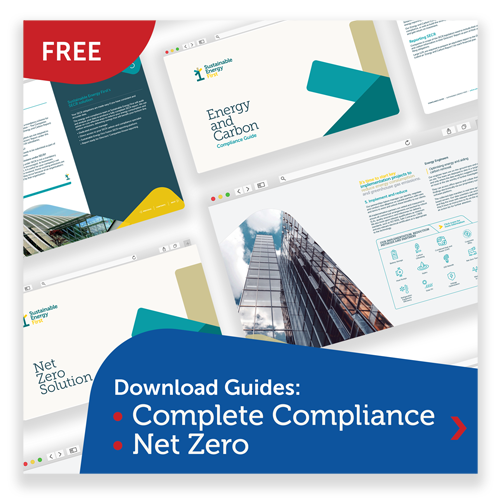
If your business is one of the 14,000 UK companies that fall within the scope of the Energy Savings Opportunity Scheme (ESOS), your compliance team will be familiar with the scheme’s requirements. Most businesses are used to the four-year cycle of gathering and reporting on their energy data, along with identifying possible opportunities for energy efficiency improvements.
But nearly ten years on from the start of the scheme, the government is consulting on some significant changes that require board-level awareness and strategic thinking.
Editorial by By Anthony Mayall, Chief Commercial Officer at BiU
Net zero element
The most significant potential change is the possible introduction of a net zero element to your ESOS audit. Until now, the scheme has been focused on encouraging businesses to waste less energy, with the hope that businesses will naturally reduce their greenhouse gas footprint as a result. But the BEIS consultation document explains that this approach can be counterproductive, because the kind of short-term cost savings achieved by businesses could actually conflict with longer term net zero goals. (BEIS gives the example of investing in a more efficient fossil fuel boiler, which saves energy in the short term but could lock an organisation into a high emissions pathway in the longer term.)
BEIS is therefore proposing that future ESOS audits should include an assessment of the organisation’s greenhouse gas emissions, in the context of a plan for how it will reach net zero. Whereas the old ESOS allowed businesses to grab the low-hanging fruit of short-term cost savings, the proposed new version would require tougher decisions. Because there will be conflicts between short-term energy efficiency actions and longer-term carbon reduction options, there will be a need for board-level discussions on these issues. If the proposed measures go ahead, we believe this will be the first time any government has mandated private businesses to develop a net zero plan. The green business press doesn’t yet seem to have picked up on the significance of this, but it’s a game-changer.
Stronger standards
The raft of changes is being proposed because BEIS sees an urgent need to change attitudes to ESOS. Their surveys suggest that many organisations see it as a compliance activity, rather than the energy saving opportunity that the name suggests. Businesses in scope of ESOS do of course implement energy efficiency measures, but only 6% of these can be directly attributed to ESOS. This strongly suggests that people are working in silos: are the people making decisions on energy management actually talking to the people responsible for ESOS compliance? BEIS sees a need for “strong senior management engagement” in the scheme so that it becomes more of a whole-organisation effort.
Organisations which see ESOS as a box-ticking exercise tend to do the bare minimum in their auditing and reporting, which is why BEIS sees huge variation in the quality of responses submitted. One possibility is that future audits will have to follow a recognised standard such as ISO 50002. Another is that it will be compulsory to record and include half-hour metering data (where available), because this provides a much more detailed and useful analysis.
Public disclosure
Also under consideration is the possibility of requiring businesses to make their ESOS data public.
The evidence BEIS has gathered so far suggests that organisations are more likely to take action on energy efficiency if they can compare their performance with that of other organisations, and that public reporting generates pressure to achieve results. The public reporting format probably wouldn’t be a league table, because there isn’t a single metric for ranking ESOS performance, but it would allow organisations to compare themselves and be compared across a variety of different metrics.
As the consultation document somewhat ominously puts it: “There would be no penalty for not achieving the target/plan other than reputational risk at this stage.” Of course, reputational risk is enough of a powerful driver for change in its own right, and the caveat “at this stage” should not be ignored either. There is a whole host of other measures I haven’t mentioned here, such as the possible reduction of de minimis exclusions and better alignment with SECR. But the key takeaway from the BEIS consultation is that government thinking is changing. Carbon reporting schemes are no longer just paperwork that can be left with the compliance team. The push for boards to take their organisation’s energy and carbon data seriously is only going to get stronger.
It’s time to get on top of these issues and begin board-level discussions on how to develop a workable net zero strategy.























